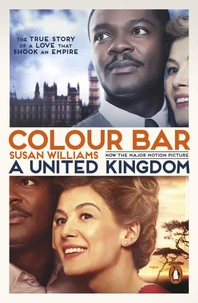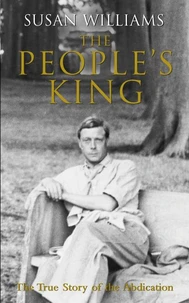Spies in the Congo. America's Atomic Mission in World War II
Par :Formats :
Disponible dans votre compte client Decitre ou Furet du Nord dès validation de votre commande. Le format ePub protégé est :
- Compatible avec une lecture sur My Vivlio (smartphone, tablette, ordinateur)
- Compatible avec une lecture sur liseuses Vivlio
- Pour les liseuses autres que Vivlio, vous devez utiliser le logiciel Adobe Digital Edition. Non compatible avec la lecture sur les liseuses Kindle, Remarkable et Sony
- Non compatible avec un achat hors France métropolitaine
 , qui est-ce ?
, qui est-ce ?Notre partenaire de plateforme de lecture numérique où vous retrouverez l'ensemble de vos ebooks gratuitement
Pour en savoir plus sur nos ebooks, consultez notre aide en ligne ici
- Nombre de pages432
- FormatePub
- ISBN978-1-61039-655-4
- EAN9781610396554
- Date de parution08/08/2016
- Protection num.Adobe DRM
- Infos supplémentairesepub
- ÉditeurPublicAffairs
Résumé
In the 1940s, the brightest minds of the United States and Nazi Germany raced to West Africa with a single mission: to secure the essential ingredient of the atomic bomb -- and to make sure nobody saw them doing it Albert Einstein told President Franklin D. Roosevelt in 1939 that the world's only supply of uniquely high-quality uranium ore -- the key ingredient for bomb -- could be found in the Katanga province of the Belgian Congo at the Shinkolobwe Mine.
Once the US Manhattan Project was committed to developing atomic weapons for the war against Germany and Japan, the rush to procure this uranium became a top priority -- one deemed "vital to the welfare of the United States." But covertly exporting it from Africa posed a major risk: the ore had to travel via a spy-infested Angolan port or 1, 500 miles by rail through the Congo, and then be shipped by boats or Pan Am Clippers to safety in the United States.
It could be poached or smuggled at any point on the orders of Nazi Germany. To combat that threat, the US Office of Strategic Services sent in a team of intrepid spies, led by Wilbur Owings "Dock" Hogue, to be America's eyes and ears and to protect its most precious and destructive cargo. Packed with newly discovered details from American and British archives, this is the gripping, true story of the unsung heroism of a handful of good men -- and one woman -- in colonial Africa who risked their lives in the fight against fascism and helped deny Hitler his atomic bomb.
Once the US Manhattan Project was committed to developing atomic weapons for the war against Germany and Japan, the rush to procure this uranium became a top priority -- one deemed "vital to the welfare of the United States." But covertly exporting it from Africa posed a major risk: the ore had to travel via a spy-infested Angolan port or 1, 500 miles by rail through the Congo, and then be shipped by boats or Pan Am Clippers to safety in the United States.
It could be poached or smuggled at any point on the orders of Nazi Germany. To combat that threat, the US Office of Strategic Services sent in a team of intrepid spies, led by Wilbur Owings "Dock" Hogue, to be America's eyes and ears and to protect its most precious and destructive cargo. Packed with newly discovered details from American and British archives, this is the gripping, true story of the unsung heroism of a handful of good men -- and one woman -- in colonial Africa who risked their lives in the fight against fascism and helped deny Hitler his atomic bomb.
In the 1940s, the brightest minds of the United States and Nazi Germany raced to West Africa with a single mission: to secure the essential ingredient of the atomic bomb -- and to make sure nobody saw them doing it Albert Einstein told President Franklin D. Roosevelt in 1939 that the world's only supply of uniquely high-quality uranium ore -- the key ingredient for bomb -- could be found in the Katanga province of the Belgian Congo at the Shinkolobwe Mine.
Once the US Manhattan Project was committed to developing atomic weapons for the war against Germany and Japan, the rush to procure this uranium became a top priority -- one deemed "vital to the welfare of the United States." But covertly exporting it from Africa posed a major risk: the ore had to travel via a spy-infested Angolan port or 1, 500 miles by rail through the Congo, and then be shipped by boats or Pan Am Clippers to safety in the United States.
It could be poached or smuggled at any point on the orders of Nazi Germany. To combat that threat, the US Office of Strategic Services sent in a team of intrepid spies, led by Wilbur Owings "Dock" Hogue, to be America's eyes and ears and to protect its most precious and destructive cargo. Packed with newly discovered details from American and British archives, this is the gripping, true story of the unsung heroism of a handful of good men -- and one woman -- in colonial Africa who risked their lives in the fight against fascism and helped deny Hitler his atomic bomb.
Once the US Manhattan Project was committed to developing atomic weapons for the war against Germany and Japan, the rush to procure this uranium became a top priority -- one deemed "vital to the welfare of the United States." But covertly exporting it from Africa posed a major risk: the ore had to travel via a spy-infested Angolan port or 1, 500 miles by rail through the Congo, and then be shipped by boats or Pan Am Clippers to safety in the United States.
It could be poached or smuggled at any point on the orders of Nazi Germany. To combat that threat, the US Office of Strategic Services sent in a team of intrepid spies, led by Wilbur Owings "Dock" Hogue, to be America's eyes and ears and to protect its most precious and destructive cargo. Packed with newly discovered details from American and British archives, this is the gripping, true story of the unsung heroism of a handful of good men -- and one woman -- in colonial Africa who risked their lives in the fight against fascism and helped deny Hitler his atomic bomb.






